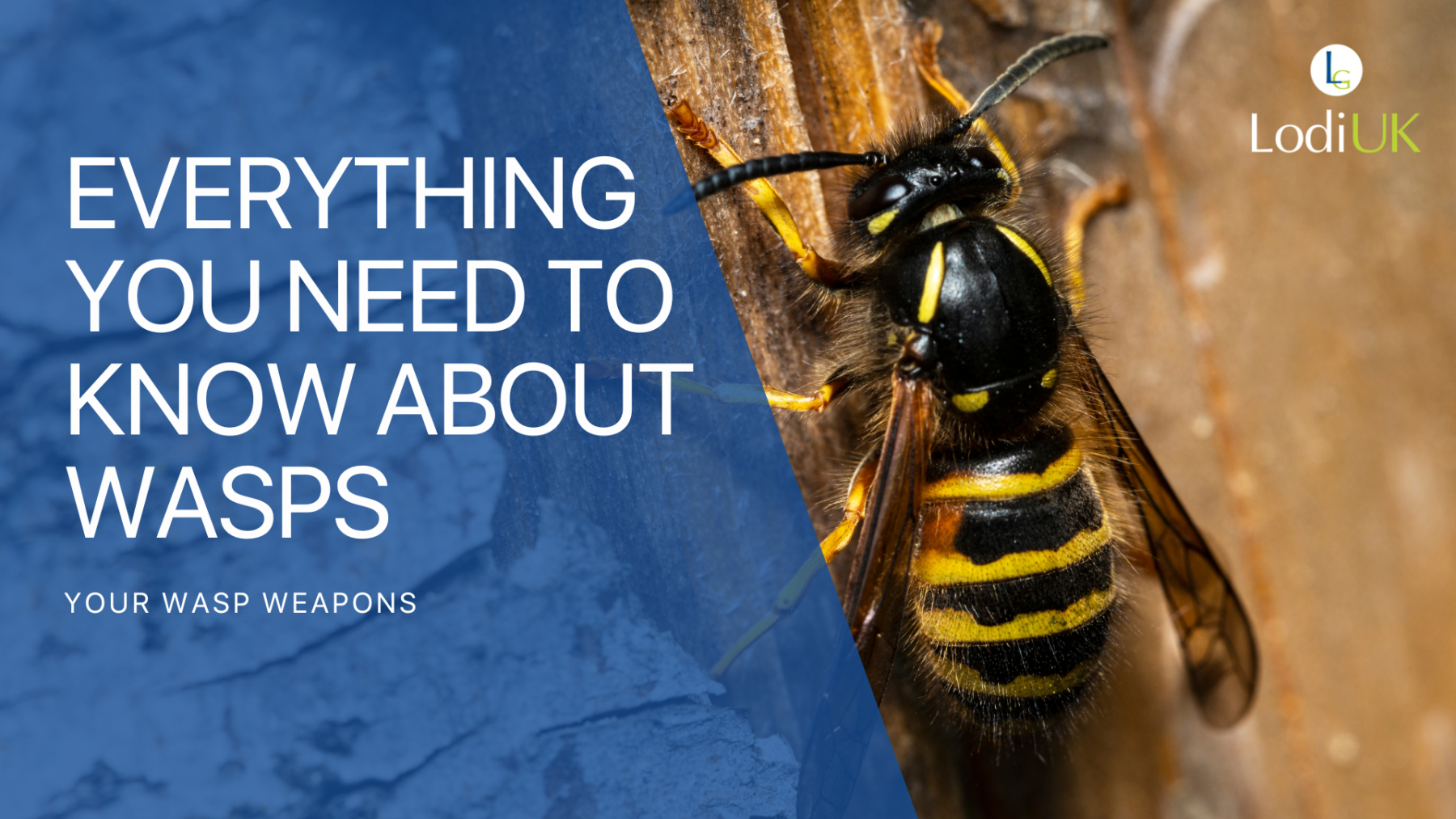
In the UK, pest controllers regularly encounter three main social wasp species: the Common Wasp (Vespula vulgaris), the German Wasp (Vespula germanica), and the Median Wasp (Dolichovespula media). Each species establishes colonies in the spring, typically initiated by a single queen. The Common and German Wasps tend to build their nests in hidden, enclosed areas such as wall cavities or underground spaces. In contrast, the Median Wasp often chooses more exposed locations like bushes, tree branches or roof eaves.
Understanding these nesting behaviours allows professionals to better anticipate where infestations are likely to occur and determine the most effective treatment strategies. With the right ecological insight, pest control operations can be both faster and more targeted.
July 2025 Wasp Activity: What We’re Seeing Now
Following a year of significantly reduced wasp activity in 2024, largely due to prolonged wet conditions and flooding that impacted queen survival rates, 2025 has seen a striking resurgence. As of July, wasp call-outs across the UK have increased significantly compared to the same time last year. The return of warmer, drier weather in the spring created the perfect conditions for early queen emergence and nest building.
Now that summer is in full swing, reports indicate a sharp rise in fully established nests, with many found in garages, lofts, and outbuildings. Pest control teams across England are experiencing a busy season, particularly in the Midlands, South East, and parts of Wales. With consistent daytime temperatures above 22°C, wasps are foraging aggressively and becoming more defensive of their colonies, making this one of the most active wasp seasons in recent memory.
Update: Asian Hornet (Vespa velutina) Sightings
One growing concern this year is the increasing number of sightings of the yellow-legged Asian Hornet (Vespa velutina). In May 2025, there had been 13 confirmed sightings and two nest destructions. As of July, that number has risen to 26 confirmed sightings and five nests eradicated, with reports stretching beyond coastal regions into central counties such as Oxfordshire.
This invasive species poses a serious threat to native pollinators, particularly honeybees. A single Asian Hornet colony is capable of consuming up to 11 kilograms of insect biomass each year, making early detection and response essential. The Asian Hornet can be identified by its orange abdominal band, black thorax, and distinctive yellow legs. Pest control professionals are urged to stay alert and report any suspected sightings to local authorities or the National Bee Unit.
Product Spotlight: Digrain Wasp & Hornet 600ml Aerosol
For effective treatment of wasp and hornet infestations, the Digrain Wasp & Hornet 600ml aerosol remains a reliable and trusted tool among pest professionals. Its powerful formula delivers fast knockdown on contact, making it ideal for both direct nest treatments and tackling individual insects.
Aerosol elimination, the unique power nozzle and extended spray range improves safety by allowing treatment from a distance, which is especially important when dealing with defensive colonies. It’s best applied during the early morning or evening, when most wasps are inside the nest and less active. Additionally, its low residual activity means there’s less risk to non-target species while still maintaining high efficacy.
Tool of the Season: The Wasp Pole Pro®
For nests located at height or in awkward spaces, the Wasp Pole Pro® continues to prove invaluable. This telescopic pole allows professionals to treat elevated nests without the need for ladders or scaffolding, significantly reducing the risk of accidents or stings and also keeping costs down exponentially for customers.
Its ergonomic design and adjustable 35ft length with 40ft reach makes it a versatile tool in residential, commercial and agricultural environments. When paired with a high-performance insecticide like Digrain Perbio Choc RTU, it enables safe, efficient application in those tough, hard to reach places.
QUARTZ Spotlight: The Wasp Control Favourite is Back in Stock
After a short period of unavailability, Quartz 3kg is now back in stock, and just in time for what’s shaping up to be one of the busiest wasp seasons in recent years. Trusted by pest controllers across the UK, Quartz is a high-performance insecticidal dusting powder that delivers consistent results in even the most challenging environments.
Quartz is formulated to tackle a wide range of crawling insects, but its effectiveness against wasps in wall cavities, roof spaces, and voids is where it really shines. The active ingredient, Azamethiphos, offers fast knockdown and results in 3-5 days.
This season, many pest professionals are reaching for Quartz to follow up on initial nest knockdowns. Once the majority of the colony has been subdued with an aerosol like Digrain Wasp & Hornet, Quartz can be applied directly into the nest site or surrounding voids to prevent re-entry and deter secondary nesting. It’s also being used as a standalone treatment in areas where nests are not immediately visible but wasp activity suggests a nearby source especially in roof voids, wall cavities, and fence-line gaps around sheds and outbuildings. The fine powder can be applied using a suitable duster or extension tool, delivering deep penetration into otherwise inaccessible spaces.
Back in Stock: But Not for Long
Since returning to stock, demand for Quartz has been high. As word spreads and temperatures rise, pest controllers are placing orders fast to stay ahead of the wasp surge.
If you haven’t already replenished your stock, now is the time.
Conclusion: Prepare for a Busy Summer
With wasp populations bouncing back strongly in 2025, pest control professionals must stay prepared. The combination of early nest establishment and sustained warm weather has set the stage for a particularly intense peak season. Keeping up with emerging international threats like the Asian Hornet, acting quickly on nest reports, and using the right products and tools will make all the difference in ensuring safe and effective treatment.
Staying one step ahead of wasps this summer means staying informed, well-equipped, and ready to respond.
RELATED DOWNLOADS









